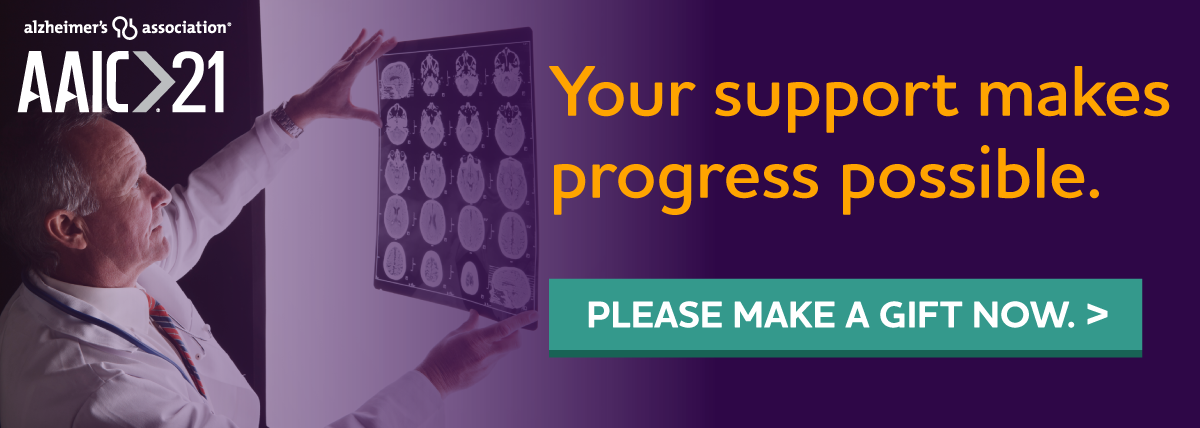|  | The Alzheimer's Association International Conference 2021 is nearly over, but our work together must continue. | | | |  | Dear Tushar,
As I write to you today, many of the world's leading scientists from the world of Alzheimer's and dementia research are wrapping up their participation in this year's Alzheimer's Association International Conference® 2021 (AAIC®). Your desire to find a cure drives them to work harder to develop one.
Some are still engaged in final discussions and making plans for the year ahead. Others are preparing to return to their labs and offices inspired and invigorated by the exchanges they've had with their colleagues.
I'm inspired, too. I know the sharing and collaborating that have taken place this week will lead to more breakthrough research discoveries and advance our mission to lead the way to end Alzheimer's and all other dementia — by accelerating global research, driving risk reduction and early detection, and maximizing quality care and support.
It isn't only scientists who make that kind of progress happen — it's also thanks to our community of supporters like you, with your dedication to the fight to end Alzheimer's.
Everything we do depends on the generosity and commitment of our community — and that includes you. I'm certain that if you could talk to all the researchers who attended this year's AAIC, they'd tell you the same thing — as the conference ends, the work begins anew.
Here are a few incredible highlights we have seen over the past five days: - Improving air quality reduces dementia risk: We know that air pollution is bad for our health, including our brains. Now we have new evidence that improving air quality may improve cognitive function and reduce dementia risk.
- COVID-19 associated with long-term cognitive dysfunction, acceleration of Alzheimer's symptoms: A new study by an international, multidisciplinary consortium, including scientific leaders from the Alzheimer's Association announced its first findings on the short-and long-term consequences of the viral infection on the brain and central nervous system.
- Education expected to decrease global dementia cases by 2050: New global prevalence data offer both good and bad news: While global access to education is expected to decrease dementia cases by 6.2 million by 2050, those benefits will be offset by increased smoking and higher body mass index and blood sugar.
This is a time for renewed commitment. This is a time to accelerate our work together. This is a time for action.
In the coming weeks and months, we'll receive additional research requests. We'll provide strong support for people facing Alzheimer's as well as their families and caregivers. And we'll continue advocating for research funding and health and safety. We will also continue to provide care and support resources through our 24/7 Helpline (800.272.3900) and alz.org.
All of that and more depends on your support. Can I count on you today?
AAIC only happens once a year. But our work continues every day. And it's urgent. I'm grateful that you're a part of our community, and today I'm asking you to take that next step and join us with your first gift today to accelerate global research while enhancing care and support.
Please visit alz.org for more exciting findings from this year's conference. I'm very grateful to know that I can count on you. Thank you.
Sincerely,

Donna McCullough
Chief Field and Development Officer
P.S. AAIC is the place to be to hear all the latest developments in Alzheimer's science — as well as for dementia researchers to network and collaborate. We can't wait to celebrate the advancements that come, with your support, from this important conference. Please help with your gift today. | | | |  |


0 Comments